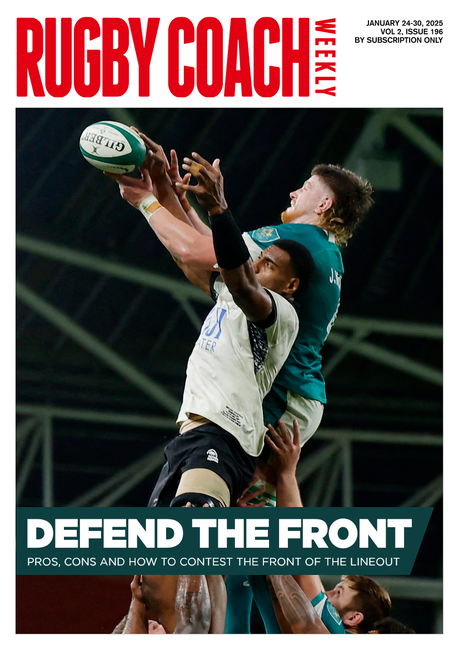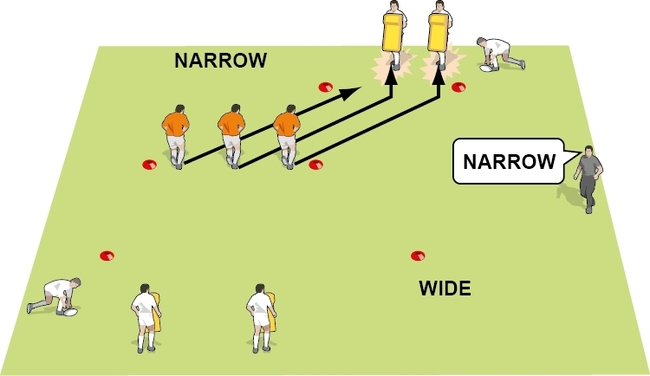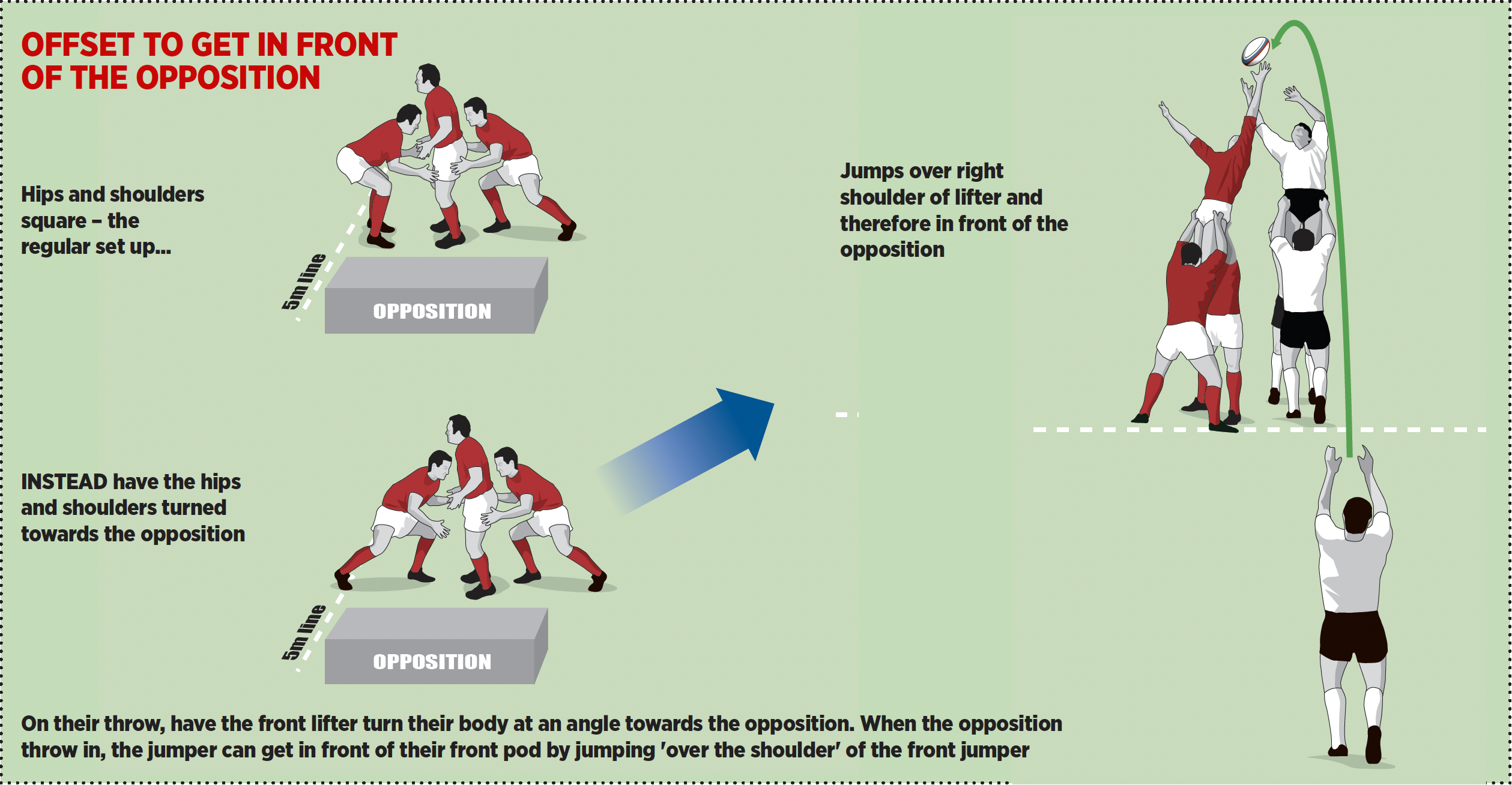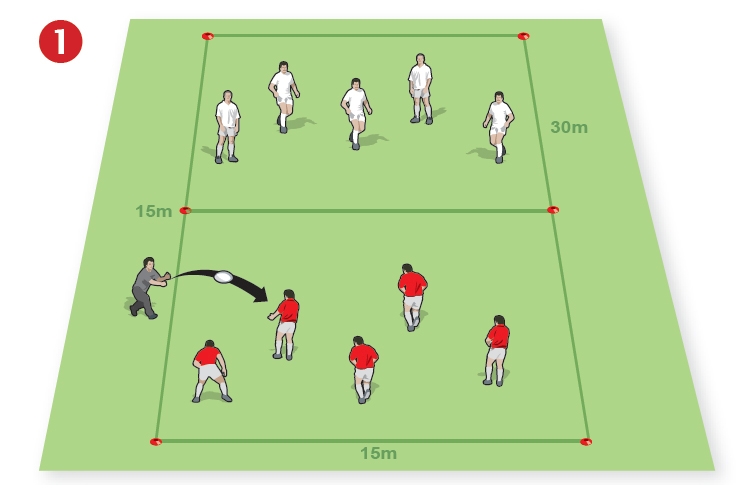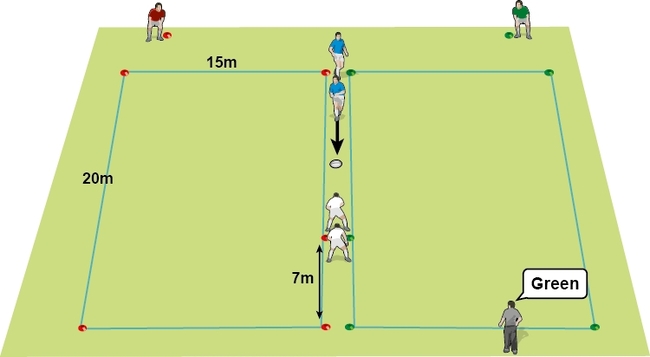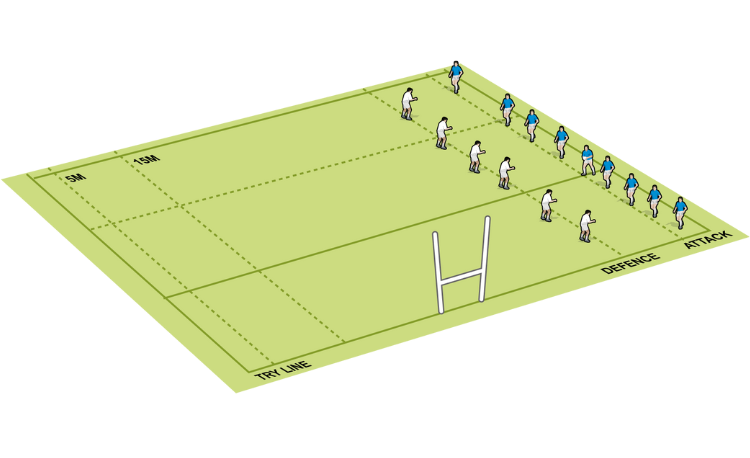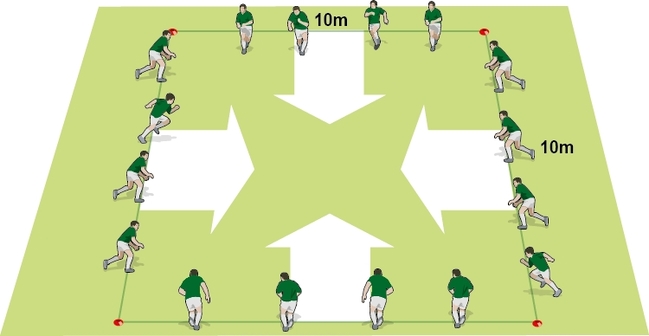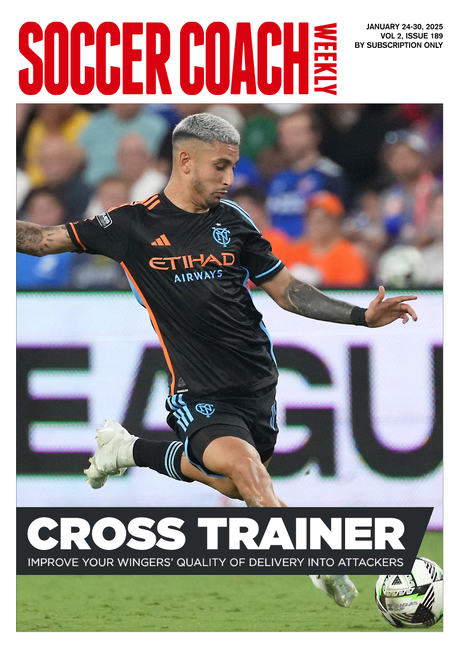Seven key rugby tips for an intense defence
Defenceby Dan Cottrell

Pressure caused by a good defence causes opponents to make unnecessary mistakes and can lead to you winning turnover ball. This article looks at the attitude that the players within your defensive system must adopt.
Get organised
Here's a checklist of the seven main aspects of an organised defence. Players must:
1. Get organised quickly: This also means having their heads up and looking at the opposition.
2. Communicate: This is the key to organising a defence. Communication must be:
- Accurate: "I've got the centre", "stay wide", "you've got him", "up fast". All clear, short messages that are easily understood.
- Noisy: Each player must let his opposite number know he's got them in his sights. The team must let the opposition know that you're organised and can't wait to get in amongst them.
- Positive: Players must praise each other when tackles are made and support the player who misses a tackle.
- Constant: When players are physically and mentally exhausted they still need to communicate effectively.
4. Have good technique: They must enjoy and take pride in their tackling.
(With two equally matched players in a 1 v 1, the top teams expect the defender to make the tackle at least 90% of the time. How do your players compare - 50:50 or maybe 60:40 in favour of the defender?)
5. Be committed to every tackle: They must want to put the man on the ground every time and then be able to get up quickly, challenging for the ball and winning turnovers.
6. Be flexible: The players must be able to react to the attack.
7. Be supportive of each other: I mean both physically, doubling-up in tackles, providing cover, getting to break downs quickly, and motivationally, praising good tackling, encouraging a player who misses a tackle and the like.
Right minds for better defence
The players' mindsets need to be right for defence. You need to encourage them to enjoy tackling, and to take pride in their individual and the team's performance.
You also need to be enthusiastic about defence and praise your players in games and training. Hold up good defenders as examples to the rest of the team and build a competitive attitude between the players. Encourage players to brag about making the biggest tackle in the last game, or winning lots of turnover ball.
Use plenty of games for defence
Training games where the attack is overloaded put defenders under a lot of mental and physical pressure. These games can pay dividends come match day, because defenders have to learn to work together - and not just as part of a system - to consistently stop an attack.
Newsletter Sign Up
Coaches Testimonials

Gerald Kearney, Downtown Las Vegas Soccer Club

Paul Butler, Florida, USA

Rick Shields, Springboro, USA

Tony Green, Pierrefonds Titans, Quebec, Canada
Subscribe Today
Be a more effective, more successful rugby coach
In a recent survey 89% of subscribers said Rugby Coach Weekly makes them more confident, 91% said Rugby Coach Weekly makes them a more effective coach and 93% said Rugby Coach Weekly makes them more inspired.
Get Weekly Inspiration
All the latest techniques and approaches
Rugby Coach Weekly offers proven and easy to use rugby drills, coaching sessions, practice plans, small-sided games, warm-ups, training tips and advice.
We've been at the cutting edge of rugby coaching since we launched in 2005, creating resources for the grassroots youth coach, following best practice from around the world and insights from the professional game.


